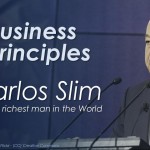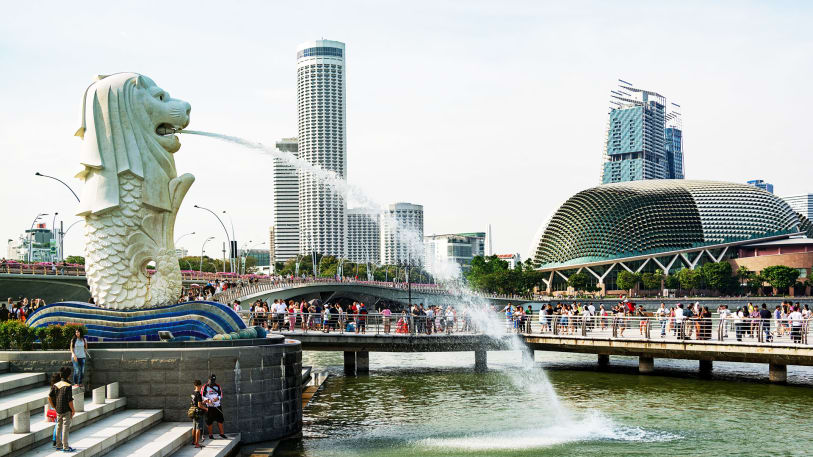What I’ve Learned In The First 12 Months After Moving My Startup To Asia
It was a year ago that I moved my company, Bluzelle, to Singapore. We were just two people at the time, and today we’re six. But even though we’re still a small startup, it’s been an exciting 12 months, and we’ve made some surprising strides while adjusting to our new environment. Here’s what I’ve learned from the experience so far.
It’s Surprisingly Easy To Hit The Ground Running
Even just a few years ago, traveling internationally demanded a lot more forethought: What roaming package do I need? How will I get around? How much money should I take?
I’ve been to over 10 new cities in the past year, and I’ve given maybe five minutes of thought to each visit. As soon as I land I pick up a local SIM card, which is usually cheap. I use Google Maps on my phone to figure out the best way to go. I call an Uber to get me to my meetings. Being on WhatsApp automatically gives you a global ID, so everyone calls each other using that. I’ve rarely used cash.
In fact, on four recent trips to India, I still haven’t gone through the $300 I took with me. And this is in a country that’s overwhelmingly cash-driven. I don’t think I’ve even downloaded a local app.
These upsides are not only just useful for individual entrepreneurs and solo business travelers, but they’re also instrumental if you’re setting up or moving a small startup overseas. In the early stages, you won’t need to contract with an enterprise communication platform or payment solution in order to start doing business. Many of the most fundamental tools you’ll need are already right in your pocket.
Faster, On-The-Fly Communication
In my experience, pretty much all business people in Asia are on WhatsApp or WeChat. And forget email intros–I get way more WhatsApp intros. Meetings are set over messaging apps, and email is only used to send the calendar invite, which is great, because it avoids the tedious email exchange to set up a meeting. And if someone doesn’t reply, you can just IM them to get a response.
If I did this back in Vancouver where we launched the company originally, the receiver would probably lose their mind over my invasion of their personal space.
My investor loves to tell a story about his first business meetings in Shanghai. No one had their laptops out, only their phones. Since just a few spoke English, people were talking to one another in a WeChat group and just hitting the translate function to convert Mandarin to English as the meeting progressed. Documents weren’t emailed over afterward–they were being sent back and forth on the fly.
The Respect For Time And Travel
When I set up my first trip to Hong Kong, I had only a couple of meetings scheduled ahead of time and was getting worried. When I told my investor that, he said, “Just go. This is Asia–things will always come up last-minute, and you will be busy. If you don’t get another three meetings while you’re there, I’ll reimburse all your costs.”
He was right. I’ve found that people realize that you made the trip over and bend over backward as a result to find time to meet up. Even if they’re busy, they’ll graciously schedule a meeting at 7 a.m. or 7 p.m.–and these are senior-level people.
I’ve also found that if your contacts like what you’re doing, they bring in the right associates immediately. More than once during an India trip, the person I’m meeting with has pulled out a phone, dialed a colleague, and said–with me sitting there–“Pavel is leaving tomorrow morning, so you have to meet him today.” On my last trip, I left a day free after a conference at which I spoke because I knew people would want to meet the next day.
Refreshingly, More Women In High-Profile Positions
Growing up in Vancouver, I was taught to assume that North America is the global leader in women’s opportunities. I believed this was true until I started doing business in Asia. I’ve mainly been active over the past year in Singapore, Hong Kong, China, and Malaysia, and the major business hubs in those areas do not represent the entire region. Still, the number of women in high-profile positions outpaces the gender diversity I’ve experienced in the West. A recent report by Credit Suisse Research backs up that impression, showing significantly higher percentages of women execs in many (if not all) senior roles:
And these aren’t in companies that cater overwhelmingly to women consumers or work in industries stereotyped as “feminine,” like fashion, beauty products, decor, and so on, but in banking, technology, and insurance. I’ve routinely seen women run meetings where 80% of attendees were men, and everyone was treated fairly. In my past year in Asia, this has been one of the most inspiring things I’ve seen.
For years I’d wondered what it would be like to launch and run an international business, and for the past 12 months, I’ve been doing it. It’s pushed me and my growing company to new heights, and I’m excited to see what comes next.
Pavel Bains is the CEO of Bluzelle, which is accelerating financial inclusion through a suite of blockchain-based products that bring new customers to financial-services companies.
Fast Company , Read Full Story
(46)














